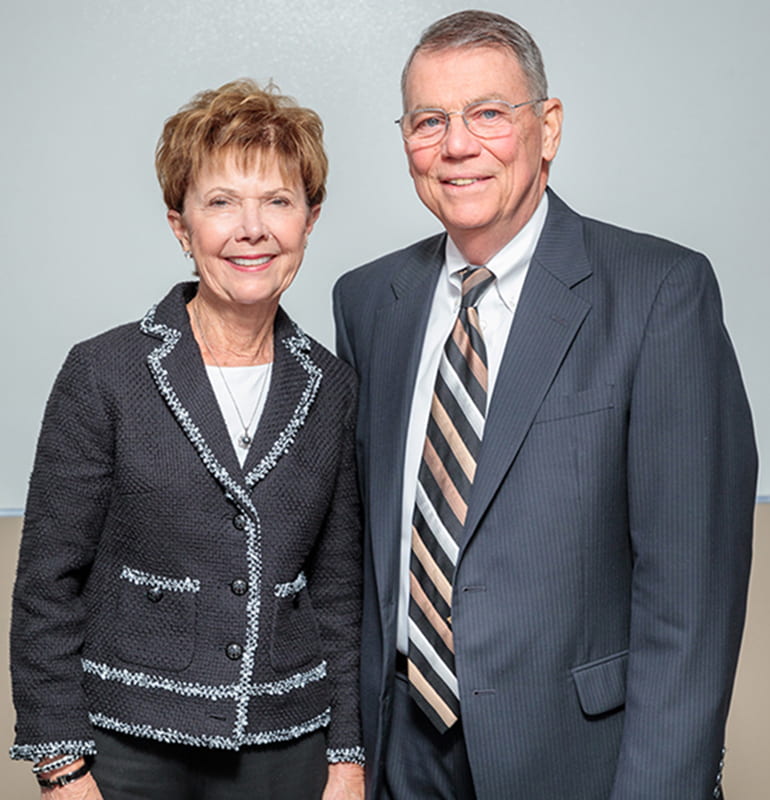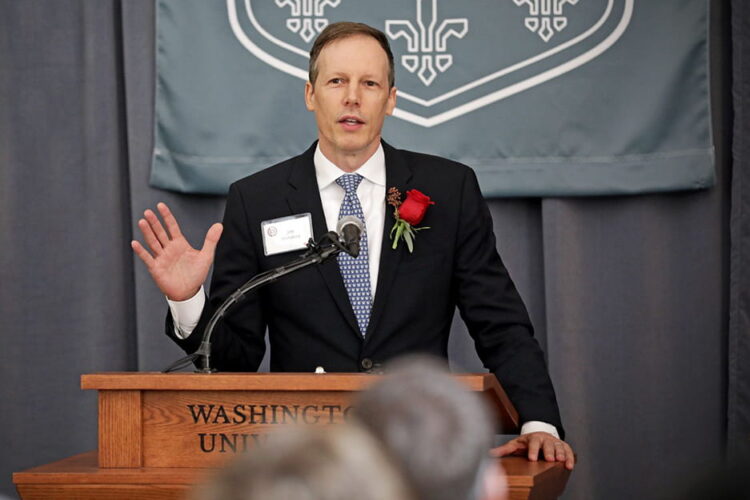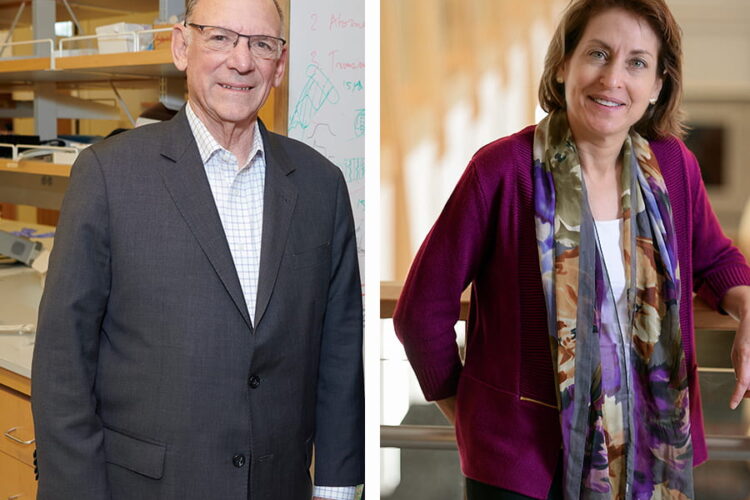During their 40 years of marriage, Rodger and Paula Riney have experienced many of life’s joys together. The founder of low-cost brokerage firm Scottrade and his wife have raised a family, built a successful business, and worked to serve the St. Louis community. They also have faced difficult challenges, including Mr. Riney’s cancer diagnosis and treatment and their parents’ battles with two neurodegenerative conditions: Alzheimer’s disease and Parkinson’s disease.

These experiences have sparked in the Rineys a heart-felt desire to help others facing similar circumstances. “These diseases affect so many people and drain families emotionally, physically, and financially,” Mrs. Riney says. “We are committed to doing whatever we can to reduce the burden for the next generation.”
Toward that end, the couple has provided significant resources to Washington University School of Medicine and the Alvin J. Siteman Cancer Center to accelerate the efforts of physicians and scientists who are working to create better treatments for the disorders. Recent gifts totaling $35 million in expendable funding have been designated for research in three areas: $20 million for multiple myeloma, $10 million for Alzheimer’s disease, and $5 million for Parkinson’s disease.
“These gifts, which come with enormous passion and vision, are allowing us to pursue our best ideas with urgency and profound purpose,” says David H. Perlmutter, MD, executive vice chancellor for medical affairs and the George and Carol Bauer Dean of the School of Medicine. “Paula and Rodger’s generous support will help spur imaginative and innovative new avenues of research at the medical school.”
The Rineys’ latest contribution for multiple myeloma research, made in September 2018, augments a $5 million gift previously provided by the couple. The funding supports three studies that aim to harness the power of personalized medicine to advance new treatments for the blood cancer, which currently has no cure. The initial gift was made in 2016 after Mr. Riney was diagnosed with multiple myeloma and sought treatment from Washington University physicians at Siteman.
“The decision to be treated at Siteman was a critical one,” Mr. Riney says. “At a nationally ranked cancer center like Siteman, researchers are always developing new treatments that improve outcomes for patients. I’ve been very lucky.”
Like their gifts for multiple myeloma research, the Rineys’ support for neurodegenerative disease research was prompted by personal experience: Mrs. Riney’s mother lived with the effects of Parkinson’s disease for more than 20 years, and Mrs. Riney’s father and Mr. Riney’s mother each struggled with Alzheimer’s disease for many years.
The combined $15 million in funding the Rineys provided for Alzheimer’s and Parkinson’s disease research in February 2019 supports multiple projects that will fast-track investigators’ endeavors to generate and test novel therapies for these conditions. These contributions follow their gift of $500,000, made in 2014, to develop techniques for visualizing the progression of Alzheimer’s disease in the brain.
Investing in the School of Medicine is a natural fit for the Rineys. In addition to bolstering world-renowned research programs, they wanted their gifts to benefit the city that has provided a hospitable home for their family and Scottrade, which was acquired by TD Ameritrade in 2017.
“St. Louis has been good to us,” Mr. Riney says. “It’s given us a place to grow and prosper. We are so pleased that we can further cutting-edge research at an institution that is in our own backyard.”
The couple receives regular updates on the work supported through their gifts. And as a newly appointed member of the medical school’s national council, Mr. Riney is poised to learn even more about research taking place at the school. As their knowledge grows, so does their belief in the power of philanthropy to advance human health.
“We think it’s important for individuals who can afford it to help fund medical research,” Mr. Riney says. “If you find out that a family member has a serious disease, don’t just sit back and think it’s too big for you to do anything about it. Every gift helps get ideas for new treatments off the ground.”
What the gifts support
Multiple Myeloma Research
Key faculty members: John DiPersio, MD/PhD, the Virginia E. and Sam J. Golman Professor of Medicine in Oncology, and Ravi Vij, MD, professor of medicine
- Developing a promising immunotherapy technique called CAR T-cell therapy for multiple myeloma
- Characterizing multiple myeloma patient genomes and proteomes and mining the data to identify personalized treatment options
- Using tissue-engineered bone marrow created from individual patient cells to screen medications and identify the most effective treatments
Alzheimer’s Disease Research
Key faculty member: John Morris, MD, the Harvey A. and Dorismae Hacker Friedman Distinguished Professor of Neurology
- Establishing an Alzheimer’s disease clinical trial center to test new drugs and therapeutic approaches
- Expanding a biomarker collection that includes patient brain scans and blood and cerebrospinal fluid samples—a key resource for Alzheimer’s investigators throughout the university
Parkinson’s Disease Research
Key faculty members: Joel Perlmutter, MD, the Elliot H. Stein Family Professor of Neurology, and Brad Racette, MD, the Robert Allan Finke Professor of Neurology
- Examining how some patients with Parkinson’s disease develop dementia
- Developing a promising drug called carboxyfullerene (C3), which has been shown to reduce the effects of Parkinson’s disease in primates
- Assessing the role of brain inflammation in Parkinson’s and determining whether immuno-suppressant drugs can counteract this inflammatory response


